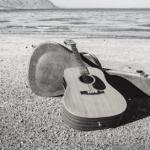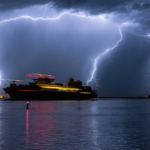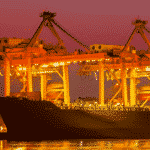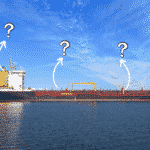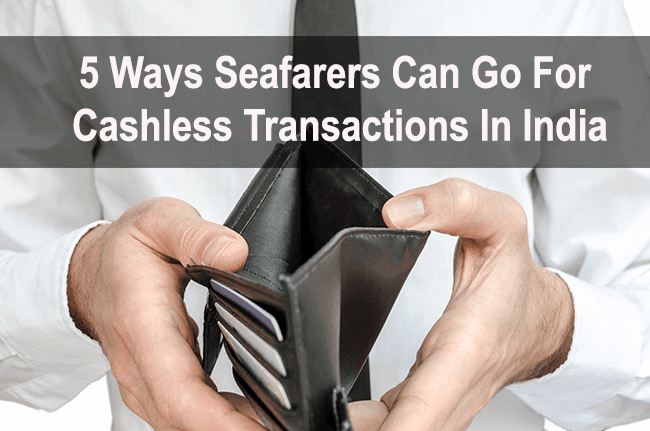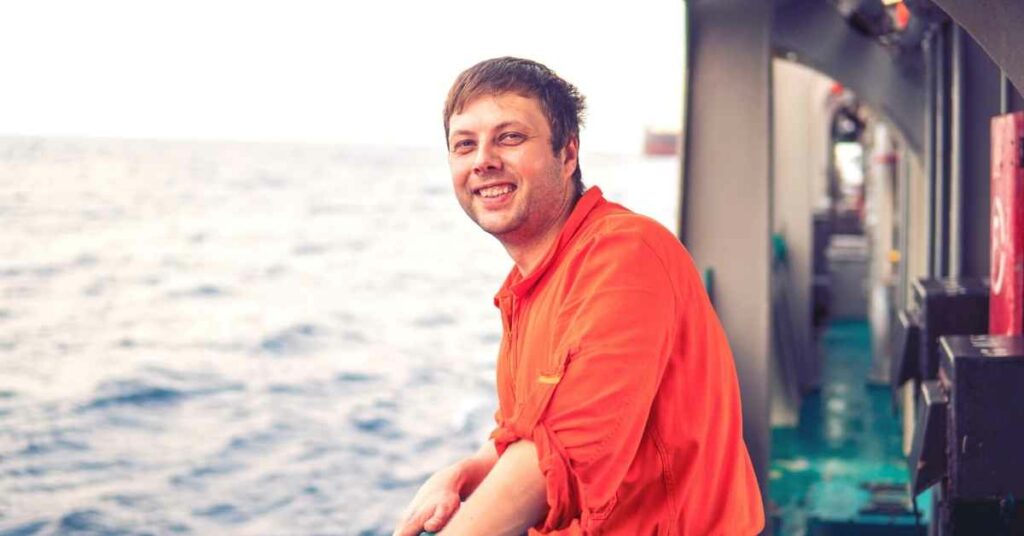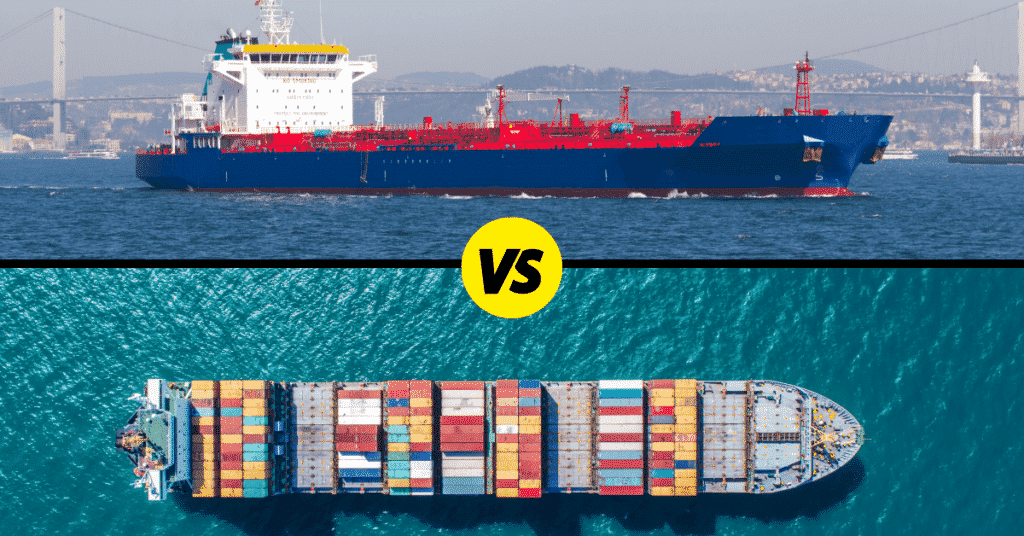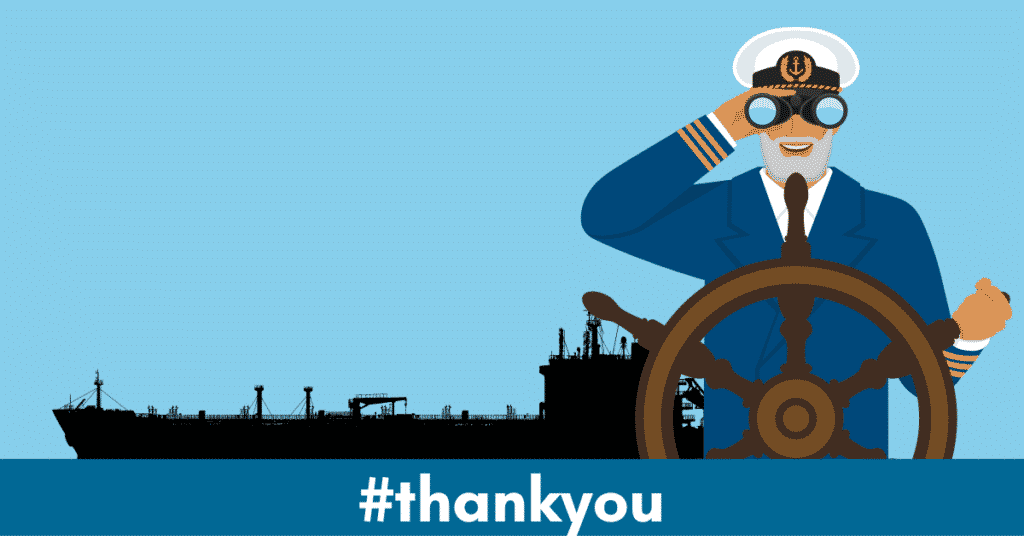11 Things I Regret Not Doing In My Sea Career – A Mariner’s Story
Life at sea is fun yet challenging. No two days are the same, and there are a lot of variables playing around. We, as seafarers, are aware of the hardships we go through and the sacrifices we and our family members make to care for our loved ones.
Having spent more than a decade at sea, I have seen and analysed how different the traits of a mariner are from a fellow landlubber. I can proudly say that the sea has given me more than I could have imagined, and I am thankful to God, my parents, my employer and my colleagues.
I have had my share of ups and downs, which has taught me much about life and the sea. There are more positives than negatives, without a doubt. However, the point of this post is to throw some light on the negatives, as it is less talked about.
I hope it assists in some or the other way the young mariners and the old, and the experienced and the naïve, and without any offence to any person or profession, brings some insight about my brothers and sisters at sea. I am sure we will share something as I’m also bred at sea like you are.
Disclaimer: The below-mentioned views are mine and mine alone and can differ from others’ points of view. Kindly help me make it better and more valuable.
1. Financial Planning
Over the years, I have realised that the root cause for this is our education system and the social structure. We are TRAINED (rather than groomed) all our lives to secure the topmost position in our schools and colleges and gain validation from a society that we are exceptional among the masses.
Our education system is theory-heavy (Both maritime and non-maritime), and there’s relatively lesser scope for creativity. After years of experience at sea and a lot of unnecessary spending, I’ve realised that we, as seafarers, don’t value money as much as we should. Indeed, we start earning well initially compared to our non-mariner peers, and that earning only increases with time.

But we spend a large chunk of it on things we hardly use or barely require, rather than wisely spending on necessities and saving and investing the requisite amount of our earnings.
We tend to get trapped in the social stigma of flaunting wealth and getting the validation of the WEALTHY status from others.
Even though it is a personal choice, the talk here is about the value and ROI. The latest iPhone is a must-have. High-end laptops, intended for the heavy usage of designing and animation, are bought by mariners. The maximum output they require is watching media or filling an Excel sheet.
We often buy expensive automobiles, such as Ducati, BMW, Mercedes, etc., only to keep them in the garage for extended months while we are sailing. Even at home, we are not using them daily, courtesy of the various maritime and company courses we have to do, mainly in metropolitan cities.
The primary cause is a lack of awareness about financial planning among seafarers and our Indian culture. However, over the last few years, financial awareness is increasing among the mariners, who have become sound and adept in economics and finance.
We, as seafarers, ought to plan our finances and periodically review them. We must consider our retirement because, as officers, we are not entitled to a provident fund scheme and many other benefits, unlike non-marine professionals. The good news is we, as NRIs, can invest in NPS (National Pension Scheme) for our retirement benefits.
So when I reflect upon this, I can easily conclude that I have made countless unnecessary spends and never planned my finances in the few initial years at least. Focus was more on impressing people and catering to others. So, start your financial planning at the earliest.
2. Building Assets/ Backup Revenue Generation
This is in line with the point mentioned above. We do not realise that building assets, big or small, is highly crucial, especially for seafarers.
While at sea, we work in a risky and unfavourable environment, where we are more prone to accidents/incidents and where things might go wrong in a split second.

Examples of such risks and perils are Fire, explosion, collision, grounding, stranding, capsizing, foundering, war, piracy, theft, capture, seizure, severe weather, cyclones, personal injury leading to disability or fatality, etc.
Moreover, additional risks are introduced depending on the type of ship and the cargo the vessel is carrying. The chemical tankers carry harsh, flammable, corrosive and carcinogenic chemicals. Any contact with such shipments could be detrimental to one’s health.
The large bulk/ore carriers are subjected to heavy stresses and are prone to structural failure.
Container ships are more prone to parametric rolling motion and subsequent capsizing. Personal injury risks include falling from a height, falling overboard, inhaling toxic gases, etc., which could lead to medical conditions and disability. The idea is not to scare the reader but to make them aware of the numerous risks and hazards one faces at sea.
So it would not be wise to depend entirely on only one source of income and be a spendthrift. It then becomes imperative for seafarers to build assets that could prove beneficial in times of need and desperation.
The asset could be something that generates revenue or merely gives financial security. It could be ownership of a real estate property, a rental property, a commercial shop, an online business, dropshipping, jewellery, auctioning and selling your art, a well-balanced stocks portfolio, Mutual funds, a reasonable insurance amount, royalties via social media, tutoring, etc.
The list is endless. We must ascertain what works best for us and what we can afford. The idea is to make your money work and not to keep it stagnant in the bank account. A heavy bank balance barely helps beat inflation.
So when I reflect upon this, I can conclude that I have been decent in building assets. With better planning and awareness, I could’ve done much more. Think about what’s doable for you and act upon it. The sooner, the better.
3. Timely Insurance for life and health
One thing we all ignore, especially as young adults, is Insurance. Why? Primarily because we are mostly not getting any return from it (Term plans). And early in our earning career, when we are young, boisterous and naïve, Insurance is the least of the concerns because we are sure that nothing will happen to us, at least medically.
While we might be partially correct that we are less prone to health conditions in our youth, Insurance comes into play when you start your own family and have dependables counting on you.

As I have discussed the hazards and risks associated with working on a ship in the previous point, as a seafarer, it is of utmost importance to have a substantial amount for the principle assured in the Insurance.
Even though we are assured by the shipping company we are working with, the assured amount might vary from company to company and might not be good enough to help your family.
Since we do not have to worry much about tax saving (perks of maintaining an NRI status), opting for insurance with high premiums, relatively low returns, and low ROI does not make much sense.
Term plans are the best bet for seafarers as they tend to have low premiums and a great ROI. So what is the hack in it? TIME. Yes, when you opt for the policy plays a crucial role in taking the most juice out of the policy. The earlier you start, the cheaper the premium is.
Opting for the same policy after a few years could more or less double the amount of the premium. One must make sure that they are fully aware of the terms and conditions of the Insurance Company (which could be dicey) and be fully conversant with the policy they are opting for. Also, do not forget to mention them in the declaration that you are a seafarer.
4. Networking/ Keeping Up With the other side of the World
Most seafarers I have seen or met in my career have not been gregarious. I have been contemplating the same over the years, and I, too, have become quite reserved and self-contained.
Far from an increase in the number of friends/ buddies, the number of my friends/colleagues has decreased over the years and is still falling. There is no concrete answer or reason to that, as it could be subjective for another individual.

However, on a casual introspection, I would argue that staying away from society and being unaware of the changes in the norms and systems of the world makes us obsolete. The world is evolving at an unimaginable pace, and it isn’t easy to keep up.
We, the poor sailors (in this regard), are at the mercy of the limited internet data we get and the little news we get over emails. Moreover, the internet onboard could be unreliable on specific headings and the lousy weather, and most of the data gets consumed in talking to our family.
Every time we sign off, our or our friends’ contact details change. Most of the functions, ceremonies, weddings, festivals, get-togethers, seminars and parties are already over by the time we return.
Plus, everyone else doesn’t take pains to be in touch. So we create our shell and restrict ourselves to that shell, which can accommodate minimal and most prominent people, and we then are content with it.
What we lose in this process is being a part of society. To meet new people and to know and understand them. To learn about the other industries and opportunities associated with them. To participate in activities, competitions and causes. To socialise with our close friends and celebrate life and prosperity.
And the list can be pretty long. Networking today is more virtual than physical. For seafarers, networking is more in line with social media platforms. However, there are far other means of networking. It could be via LinkedIn, attending seminars/webinars, conferences, volunteer groups, social media groups, job fairs, etc. Getting more contacts doesn’t harm.
Please get to know people and get yourself known to them. It creates a cohesive environment where one does not feel left out. I regret not attending the company seminars or webinars, thinking it is all a waste of time. Start networking, and it will only prove beneficial.
5. Continuing Hobbies and Interests
Have you been excellent in sports in your school time? Or have you been an ardent reader? Did you like painting while you were young? Or did writing poems fascinate you in your youth? We all must have had some hobbies or interests in our youth.
As we grow older, we discreetly and inadvertently let go of things we were passionate about. This is the tale which applies to both marine and non-marine professionals. The difference is that non-marine professionals have better chances of continuing their hobbies.

On the other hand, it is relatively difficult for mariners to follow because of extended work days, lack of resources and time due to hectic schedules. However, if we ask ourselves, is this always the case? Well, I think that, if not all, the possible hobbies could still be pursued on board, provided we have the intent and time.
Hobbies such as reading, writing, playing musical instruments, working out, indoor sports, etc., can be quickly followed on board instead of only watching TV series and movies.
I, for example, love to read fiction novels and classics. I used to read a lot, but with time, I lost the intent to read and made excuses not to start reading, such as fatigue or socialising. But years later, I realised it was so easy to take out time, but I still did not. Was it possible, definitely, yes? Was it executed, a big no? We often keep on planning instead of acting, which is even worse.
I have seen, in numerous cases, people bringing guitars along with them while joining the ship and religiously practising it. Many mariners have a hobby in crafts, making excellent wooden ship models on board.
What about the time when we are home? Barring the initial few days after our sign-off, when we take the liberty of sleeping for the entire day and are pampered beyond the imagination by our family members, we have the whole day with us to pursue our hobbies and interests after that. Even if your friends cannot join you because they are away, it is still possible to join a club and find a way to go ahead.
6. Keeping up with the changes in the Maritime Industry
I am pretty sure that almost all of us, as seafarers, feel that after our repatriation, our time at home is a well-earned vacation and is rightly so because of months of continuous work under stressful conditions.
So we end up lazing around and doing nothing, apart from enjoying quality family time, occasional socialising, catching up with loved ones and visiting places. This process goes on for months; soon, the time for re-joining comes back before we know it.

We board the ship with mixed emotions and memories and get on with our jobs. However, in this process, barring a few, most of us never even bother to check on the changes in the maritime sector.
A whole new convention might have been enforced in this while, and we could still be unaware of that. The thought prevails here: “I have to do my job for the next few months; why bother knowing about it right now? We’ll anyway learn it once we are on board next.”
We think we will catch up with all the changes or amendments in the conventions, regulations, notices, publications, company procedures, checklists and whatnot during our next assignment on board the ship. And what a wishful fantasy that is. While it is true that we might be able to be conversant with changes in a few of the items above, knowing it all never happens, at least in my experience.
It is not that the changes are introduced in a secretive manner, or they are accessible by a select few. In today’s tech-heavy world, information is excessive and relatively easily accessible. It is our interest and intent that make all the difference. It hardly takes a few minutes to review any such update or article. I would at the same time agree that, at times, the amendments are too wordy and convoluted, but knowing the gist of them won’t harm.
The information on advancements and innovations in the shipping industry is ignored too. We, as seafarers, must at least strive to become experts in our industry domain and possess a sound knowledge of the advancements. Numerous websites and applications deliver quality and concise information on the shipping industry.
7. Community Building
There is a saying in the maritime industry, especially among the Indian seafarers, that states, “Most of the friendships on board the ships last till the gangway only.” I can’t vouch precisely for the same, but it is true to an extent.
While I am still in touch with most of my close sailor colleagues, I, at the same time, do not even remember the names of most of them. I still wonder why that is, but a part of it points out the reasoning mentioned in point no.4.
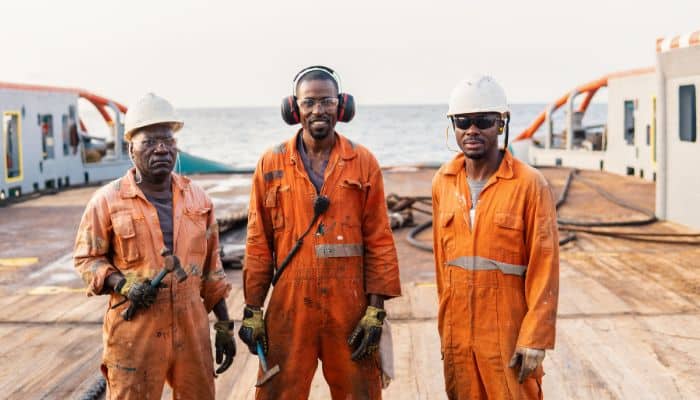
We create our shell, and we are content with it. Also, catching up with a fellow sailor is not always possible because the other person might be sailing when you are home and vice-versa.
In a few months/years, the person would be forgotten. In the long run, we lose the opportunity to build a solid and cohesive Maritime community, whether on a large or small scale.
Even being a part of such a group would provide unimaginable support, be it operational, technical or welfare related. The other benefit would be exchanging information on opportunities and company-related information if a seafarer in need of employment thus requires it.
If I ponder over my sailing experience, I can say that I could make a giant sailor circle. We can at least join the local groups in our hometown and attend meetups and get-togethers and get to know our fellow neighbour sailors.
8. Learning New Skills
It is rightly said that one has to upgrade themselves with the changing tides of time. One, who does not, may lose numerous opportunities coming his way.
For seafarers, the upgrades are in the form of upgradation, revalidation, modular courses, and other company-specific courses. In reality, we all know how beneficial, such courses are. Even though a lot of renowned institutes carry out such courses in an efficient manner, on the other hand, most of the institutes carry out such courses just for the sake of it and provide the certification only based on attendance.

However, coming to the point, for us sailors, learning new skills might not cater to our needs immediately, especially if the skills are not maritime-related. The term SKILL is quite vague here.
Doing a photography course, attending a mountaineering course expedition, learning a new language, opting for an online maritime course, learning to cook new dishes, attending a Scuba-diving certification course and thus becoming a professional Scuba-diver instructor, learning coding, digital marketing, and the list is ongoing.
If not immediately, learning new skills definitely would assist you in the later stages, especially if you want to transition your career into another area of interest. It will also do justice to your application in the extra-curricular if you apply to a Master’s or MBA program. The best thing is you will be learning new things and having a lot of fun simultaneously.
9. Doing Specialisation/ Value Adding Courses
This is in line with the point mentioned above. Many online specialisation courses are available today on platforms such as Udemy, Coursera, eDX, Unacademy, etc.
Considering the value of certification provided for the courses completed, Udemy and eDX are the best platforms for courses carried out by prestigious universities, such as Harvard, MIT, etc.
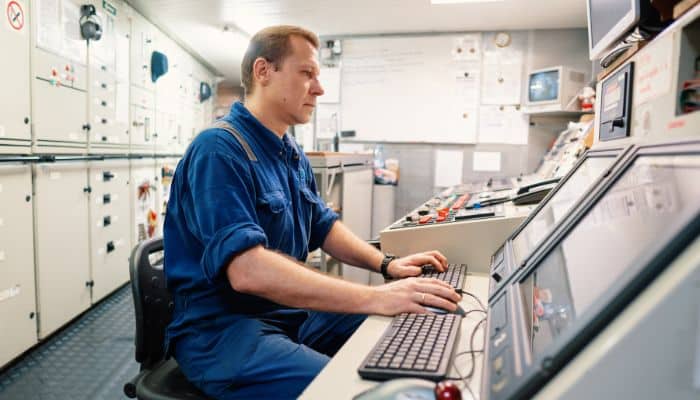
If one wants to do online courses in the maritime sector only, Indian Maritime University, Lloyd’s Maritime Academy, World Maritime University, University of Plymouth, Erasmus University, Middlesex University, University of Tasmania, etc . provide an array of diplomas and degree courses in the shipping and maritime sector.
If a seafarer is fond of teaching and is interested in getting into the Maritime teaching/training sector in India, either in the capacity of a permanent or a visiting faulty, doing the VICT (Vertical Integration Course for Trainers) course, earlier known as TOTA(Training for Trainers and Assessors), is mandatory. The list of DG-approved institutes conducting the VICT course can be found on the official DG India website.
10. Travelling
Well, this is debatable. Why? Because the landlubbers assume that since we are TRAVELLING (actually sailing) across the world, we have seen and experienced all the ports we’ve touched. Almost all my relatives and friends ask me this question without fail, “You’re so lucky. You’re getting paid to travel. Your job is so cool. You must have seen the entire world.” If not far from it, the truth is a part of this reality. We don’t always get to travel to the port we’re going to. A few of the causes could be :
A. Terminal restrictions ;
B. COVID restrictions ;
C. Short port stay ;
D. Any expected inspection ;
E. Any unexpected inspection ;
F. Any breakdown in machinery ;
G. Any planned maintenance or technician visit ;
H. Thinking of being seriously tired after visiting places and coming directly for the watch requires good attention (basically long hours of work without rest), etc.
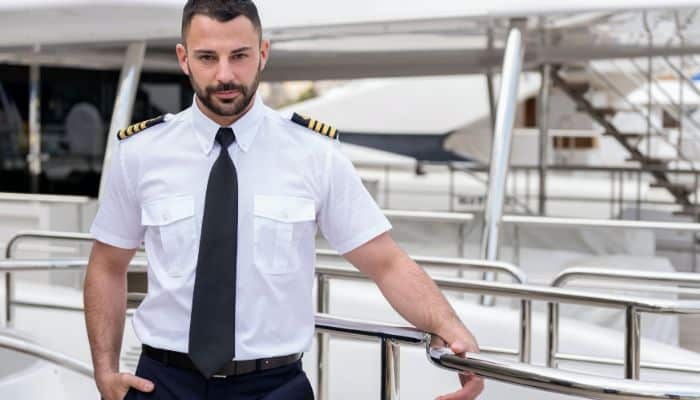
I never left any opportunity for going ashore and exploring places, of course, at the expense of continuous work and being dependent on mandatory coffee shots to keep me alert during watch. But I do not consider that travelling, since a lot of time is wasted in arranging transport and logistics and we get to see the periphery of the port, courtesy of the limited off-time we get. Plus, there is no peace of mind because of the time pressure. Most of the seafarers opt to shop and return.
So yes, the time when I could have travelled the most was the time when I was home. Even though I have been a frequent traveller off late and I make sure that I visit at least two destinations in India in my vacations, I regret not doing that in my initial years. Of course, travelling might not be appealing to all, but it gives peace of mind to many. The best part is India is a country vast enough to cover and explore most of the places in our lifetime and is considerably cheap and economical.
11. Wasting Less time on social media
Here comes the elephant in the room. The favourite pastime of not just seafarers but non-seafarers as well. Hours and hours of unnecessary streaming on YouTube, Instagram, Facebook, Twitter, Snapchat, etc., nagging by our mothers/wives to get up and get a life and still lying like a cadaver on our beds.
We all can relate to at least this one. The good thing about the shipping career is that we are the kings of our vacation time. No waking up early. No struggles in reaching the office on time.
No reporting of any kind whatsoever to anyone. No accountability of any sort. Vacation means vacation. Sadly, that’s also the bad part. No accountability of any kind leads to no plans, which thus leads to cluelessness in seafarers in how to kill time, especially if there’s nothing lined up to do.
This leads to hours of aimless scrolling on social media and other websites. While this gives us temporary amusement and satisfaction, the time wasted is substantial. Therefore, it becomes necessary to restrict our social media time and strictly abide by that.
I regret doing many other things, too, in my life, but they would reach beyond the scope and intent of this post. With the anticipation that my fellow seafarers and the sailors yet to come to learn from my mistakes, avoid doing them and make wise decisions after that, I put an end to this post. Bon voyage.
You might also like to read-
- What Are Trans-Shipment And Trans-Shipment Ports?
- Understanding Maritime Towage And Salvage
- How Ships Fight Corrosion At Sea?
- What Is Mooring Of Ships?
- What Is Transverse Thrust In Ships?
Disclaimer: The authors’ views expressed in this article do not necessarily reflect the views of Marine Insight. Data and charts, if used in the article, have been sourced from available information and have not been authenticated by any statutory authority. The author and Marine Insight do not claim it to be accurate nor accept any responsibility for the same. The views constitute only the opinions and do not constitute any guidelines or recommendations on any course of action to be followed by the reader.
The article or images cannot be reproduced, copied, shared, or used in any form without the permission of the author and Marine Insight.
Do you have info to share with us ? Suggest a correction

About Author
Shashank Shekhar Singh is a Chief officer and a licensed Master (FG) , sailing on Oil and Chemical tankers. His interests lie in the energy and maritime sector, travel, trekking and reading.
Related Posts
Subscribe To Our Newsletters
By subscribing, you agree to our Privacy Policy and may receive occasional deal communications; you can unsubscribe anytime.




